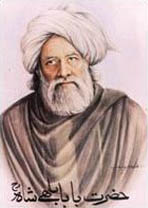A Quote by N. T. Wright
Worship is love on its knees before the beloved; just as mission is love on its feet to serve the beloved
Related Quotes
Love may, indeed, love the beloved when her beauty is lost: but not because it is lost. Love may forgive all infirmities and love still in spite of them: but Love cannot cease to will their removal. Love is more sensitive than hatred itself to every blemish in the beloved… Of all powers he forgives most, but he condones least: he is pleased with little, but demands all.
A lover asked his beloved, Do you love yourself more than you love me? Beloved replied, I have died to myself and I live for you. I've disappeared from myself and my attributes, I am present only for you. I've forgotten all my learnings, but from knowing you I've become a scholar. I've lost all my strength, but from your power I am able. I love myself...I love you. I love you...I love myself.
When the rose is gone and the garden faded you will no longer hear the nightingale's song. The Beloved is all; the lover just a veil. The Beloved is living; the lover a dead thing. If love withholds its strengthening care, the lover is left like a bird without care, the lover is left like a bird without wings. How will I be awake and aware if the light of the Beloved is absent? Love wills that this Word be brought forth.
There are three kinds of love;
unselfish, mutual, and selfish.
The unselfish love is of the highest kind;
The lover only minds the welfare of the beloved and does not care for his own sufferings.
In mutual love the lover not only wants the happiness of his beloved;
but has an eye towards his own happiness also. It is middling.
The selfish love is the lowest. It only looks towards its own happiness,
no matter whether the beloved suffers weal or woe.
Pleasure and pain at once register upon the lover, inasmuch as the desirability of the love object derives, in part, from its lack. To whom is it lacking? To the lover. If we follow the trajectory of eros we consistently find it tracing out this same route: it moves out from the lover toward the beloved, then ricochets back to the lover himself and the hole in him, unnoticed before. Who is the subject of most love poems? Not the beloved. It is that hole.
The curt truth is that, in a deep secret way, the state of being beloved is intolerable to many. The beloved fears and hates the lover, and with the best of reasons. For the lover is forever trying to strip bare his beloved. The lover craves any possible relation with the beloved, even if this experience can cause him only pain.
When you work you fulfill a part of earth's furthest dream, assigned to you when that dream was born, And what is it to work with love? It is to weave the cloth with threads drawn from your heart, even as if your beloved were to wear that cloth. It is to build a house with affection, even as if your beloved were to dwell in that house. It is to sow seeds with tenderness and reap the harvest with joy, even as if your beloved were to eat the fruit. It is to charge all things you fashion with a breath of your own spirit. Work is love made visible




































